Greysheet & CPG® PRICE GUIDE
- U.S. Coins /
- Dimes /
-
Draped Bust Dimes (1796–1807) Values
About This Series
While the Draped Bust and Capped Bust designs are the two major types of Bust dimes, there are also subtypes within those series. For the Draped Bust dime, there are two distinct types of reverse designs, including the Small Eagle (1796-1797) and the Heraldic Eagle Reverse (1798-180...
Catalog Detail
Legal Disclaimer
The prices listed in our database are intended to be used as an indication only. Users are strongly encouraged to seek multiple sources of pricing before making a final determination of value. CDN Publishing is not responsible for typographical or database-related errors. Your use of this site indicates full acceptance of these terms.
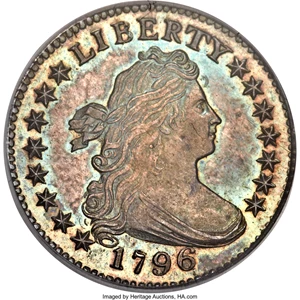

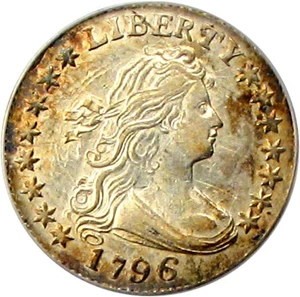
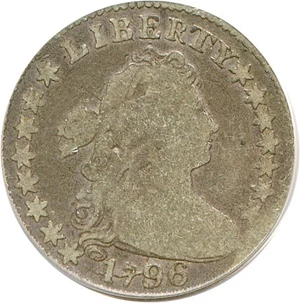
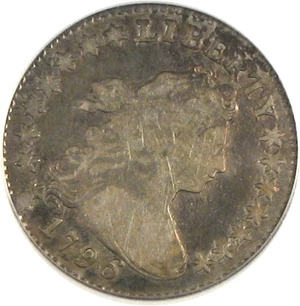
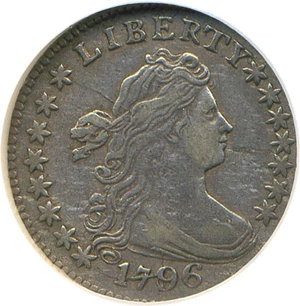
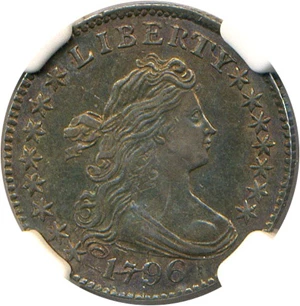
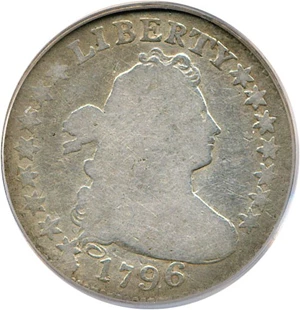
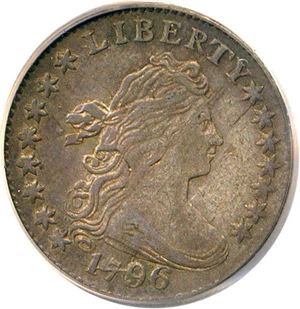
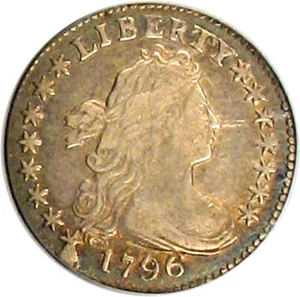

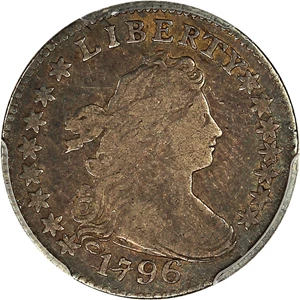
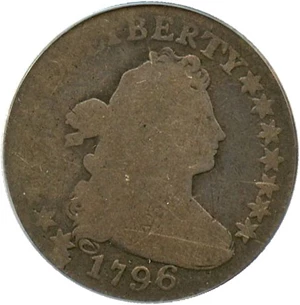

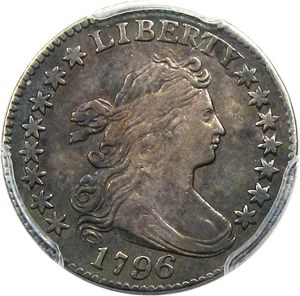
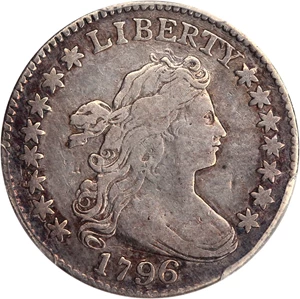
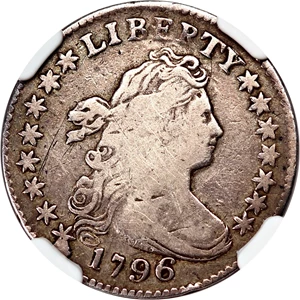
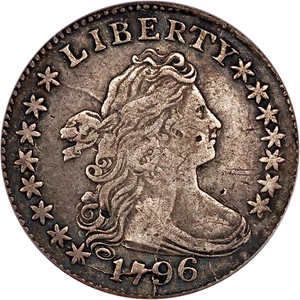
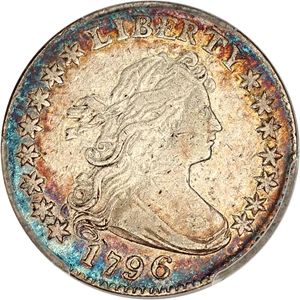
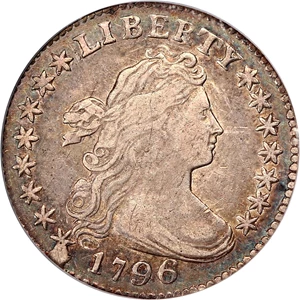
| Draped Bust Dimes (1796–1807) | Value Range | Favorite | |||
|---|---|---|---|---|---|
| Draped Bust Dimes (1796–1807) | Value Range | ||||
|
$2,400
-
$1,440,000
$2,400 - $1,440,000
|
||||
|
$360
-
$144,000
$360 - $144,000
|
||||
|
$2,400
-
$1,440,000
$2,400 - $1,440,000
|
||||
|
-
|
||||
|
$2,400
-
$1,440,000
$2,400 - $1,440,000
|
||||
|
$2,400
-
$1,440,000
$2,400 - $1,440,000
|
||||
|
$2,600
-
$950,500
$2,600 - $950,500
|
||||
|
$2,400
-
$1,440,000
$2,400 - $1,440,000
|
||||
|
$2,600
-
$950,500
$2,600 - $950,500
|
||||
|
$2,400
-
$1,440,000
$2,400 - $1,440,000
|
||||
|
-
|
||||
|
$1,200,000
-
$1,440,000
$1,200,000 - $1,440,000
|
||||
|
$2,400
-
$300,000
$2,400 - $300,000
|
||||
|
$2,400
-
$300,000
$2,400 - $300,000
|
||||
|
$2,600
-
$576,000
$2,600 - $576,000
|
||||
|
$2,600
-
$576,000
$2,600 - $576,000
|
||||
|
$1,000
-
$120,000
$1,000 - $120,000
|
||||
|
$1,000
-
$120,000
$1,000 - $120,000
|
||||
|
$3,500
-
$259,000
$3,500 - $259,000
|
||||
|
$3,500
-
$259,000
$3,500 - $259,000
|
||||
|
$850
-
$108,000
$850 - $108,000
|
||||
|
$850
-
$108,000
$850 - $108,000
|
||||
|
$1,250
-
$360,000
$1,250 - $360,000
|
||||
|
$1,250
-
$360,000
$1,250 - $360,000
|
||||
|
$725
-
$252,000
$725 - $252,000
|
||||
|
$950
-
$252,000
$950 - $252,000
|
||||
|
$950
-
$252,000
$950 - $252,000
|
||||
|
$525
-
$165,500
$525 - $165,500
|
||||
|
$950
-
$165,500
$950 - $165,500
|
||||
|
$950
-
$165,500
$950 - $165,500
|
||||
|
$1,150
-
$137,000
$1,150 - $137,000
|
||||
|
-
|
||||
|
$1,150
-
$137,000
$1,150 - $137,000
|
||||
|
$1,250
-
$150,500
$1,250 - $150,500
|
||||
|
$1,150
-
$137,000
$1,150 - $137,000
|
||||
|
$650
-
$259,000
$650 - $259,000
|
||||
|
$19,000
-
$24,000
$19,000 - $24,000
|
||||
|
$725
-
$285,000
$725 - $285,000
|
||||
|
$650
-
$259,000
$650 - $259,000
|
||||
|
$650
-
$259,000
$650 - $259,000
|
||||
|
-
|
||||
|
$3,150
-
$230,500
$3,150 - $230,500
|
||||
|
$3,150
-
$230,500
$3,150 - $230,500
|
||||
|
$3,750
-
$576,000
$3,750 - $576,000
|
||||
|
$3,750
-
$576,000
$3,750 - $576,000
|
||||
|
$360
-
$240,000
$360 - $240,000
|
||||
|
$360
-
$81,000
$360 - $81,000
|
||||
|
$395
-
$43,000
$395 - $43,000
|
||||
|
$395
-
$43,000
$395 - $43,000
|
||||
|
$360
-
$144,000
$360 - $144,000
|
||||
|
$360
-
$144,000
$360 - $144,000
|
||||
From the Greysheet Marketplace
Buy Now: $878.75
Buy Now: $462.50
Buy Now: $27,750.00
Buy Now: $4,895.00
Buy Now: $3,000.00
Buy Now: $53,187.50
Buy Now: $19,656.25
Buy Now: $19,078.13
Auction Ends: 11/16/2023
Auction Ends: 11/16/2023
Related Stories (powered by Greysheet News)
View all news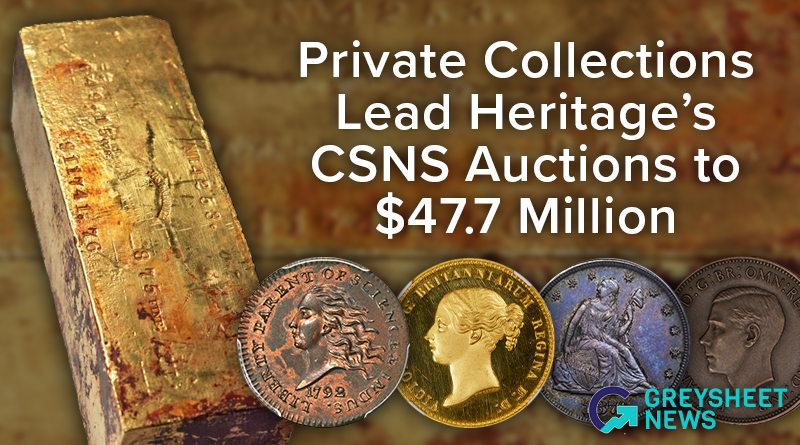
Bruce Sherman Collection, Part II headlines $31.7 million U.S. coins event; Charles Buckley and Ronald Gustafson collections lead currency event.
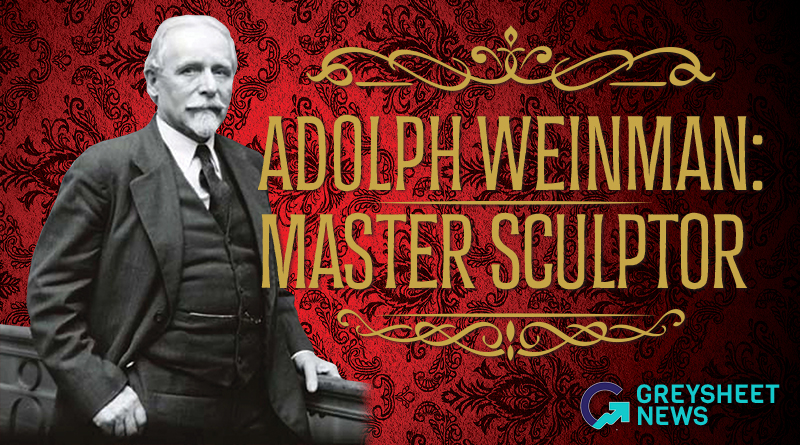
Weinman did not consider himself to be a coin designer or medalist, but instead referred to himself as a sculptural artist.
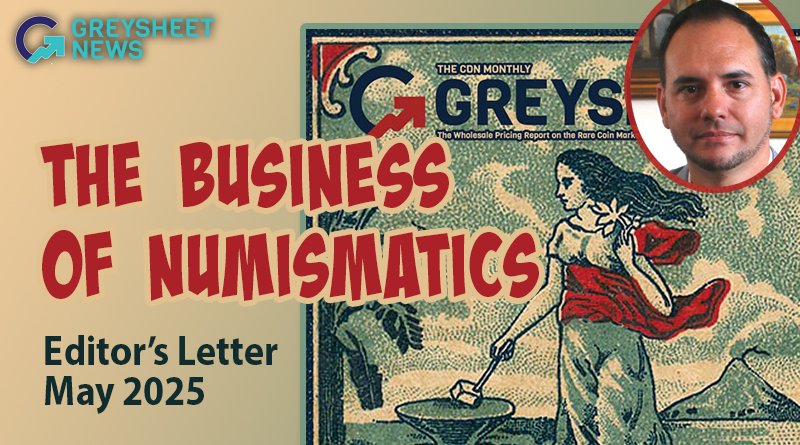
There was no shortage of market madness towards the end of March and into April, from both a macro equity point of view and in precious metals.
Greysheet Catalog Details
While the Draped Bust and Capped Bust designs are the two major types of Bust dimes, there are also subtypes within those series. For the Draped Bust dime, there are two distinct types of reverse designs, including the Small Eagle (1796-1797) and the Heraldic Eagle Reverse (1798-180...
Catalog Detail
Legal Disclaimer
The prices listed in our database are intended to be used as an indication only. Users are strongly encouraged to seek multiple sources of pricing before making a final determination of value. CDN Publishing is not responsible for typographical or database-related errors. Your use of this site indicates full acceptance of these terms.



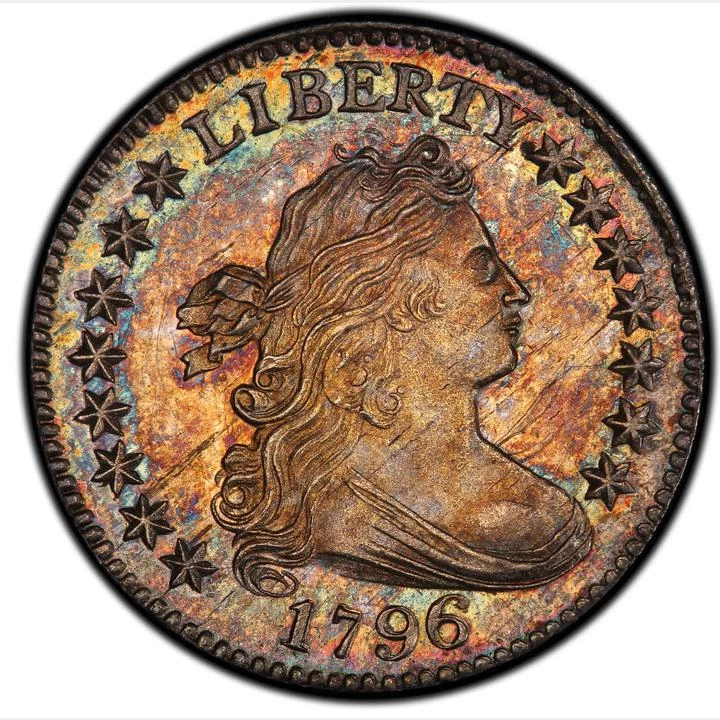

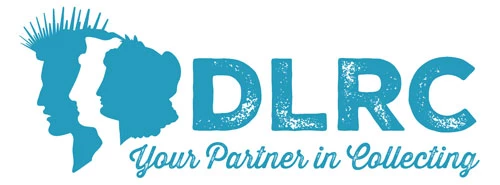




 Loading more ...
Loading more ...








